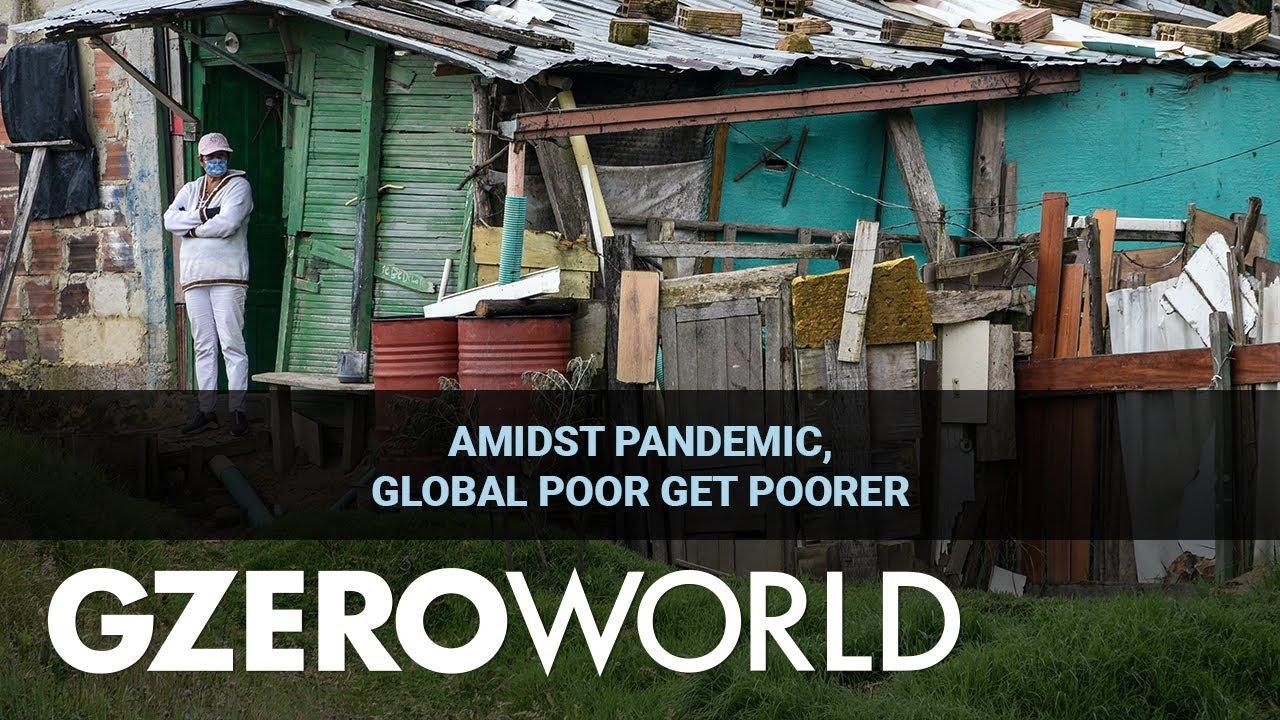GZERO World with Ian Bremmer
Do the global poor have a champion in the World Bank?

Do the Global Poor Have a Champion in the World Bank? | World Bank's David Malpass | GZERO World

For the first time in twenty years, extreme poverty around the world is growing. How does the developing world recover from a pandemic that has brought even the richest nations to their knees? David Malpass, the President of the World Bank, is tasked with answering that question. He joins Ian Bremmer on GZERO World to talk about how his organization is trying to keep the developing world from slipping further into poverty in the wake of a once-in-a-century pandemic.
1,170: The number of high-rise buildings in Kyiv that were left without heating following a barrage of Russian attacks last night on Ukraine’s capital and its energy facilities, per Kyiv Mayor Vitali Klitschko.
U.S. President Donald Trump and Japanese Prime Minister Sanae Takaichi hold up signed documents regarding securing the supply of critical minerals and rare earths, at a bilateral meeting at Akasaka Palace in Tokyo, Japan, October 28, 2025.
Representatives from the European Union, United Kingdom, Japan, and others will meet in Washington this week to discuss a strategic alliance on critical minerals.
80,000: The number of people estimated to be in the streets of Czechia on Sunday to show their support for President Petr Pavel after he blocked the nomination of an environmental minister who performed the Nazi salute and posted Nazi memorabilia.
The US has started handing $1,000 to the bank accounts of newborn babies. But can policies like this one help boost sagging birthrates in advanced democracies?